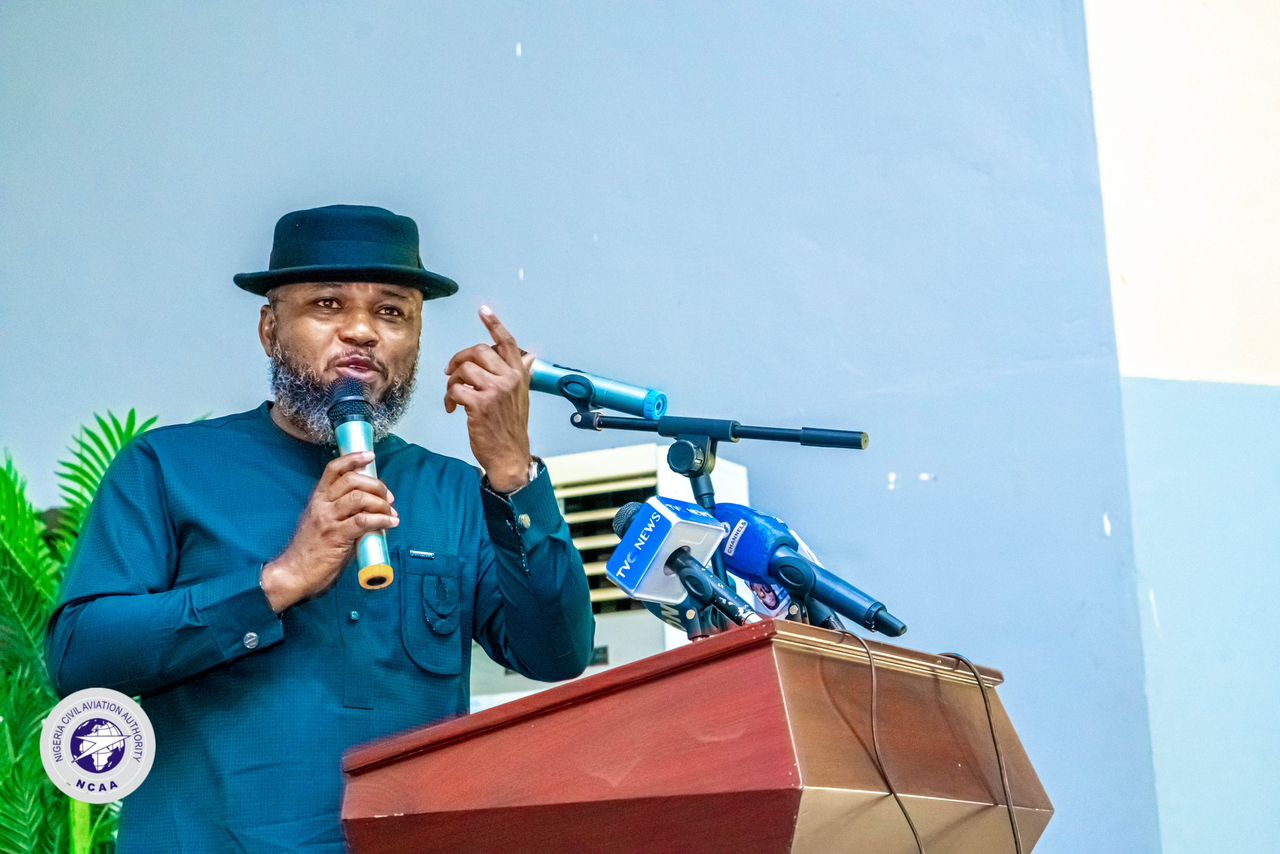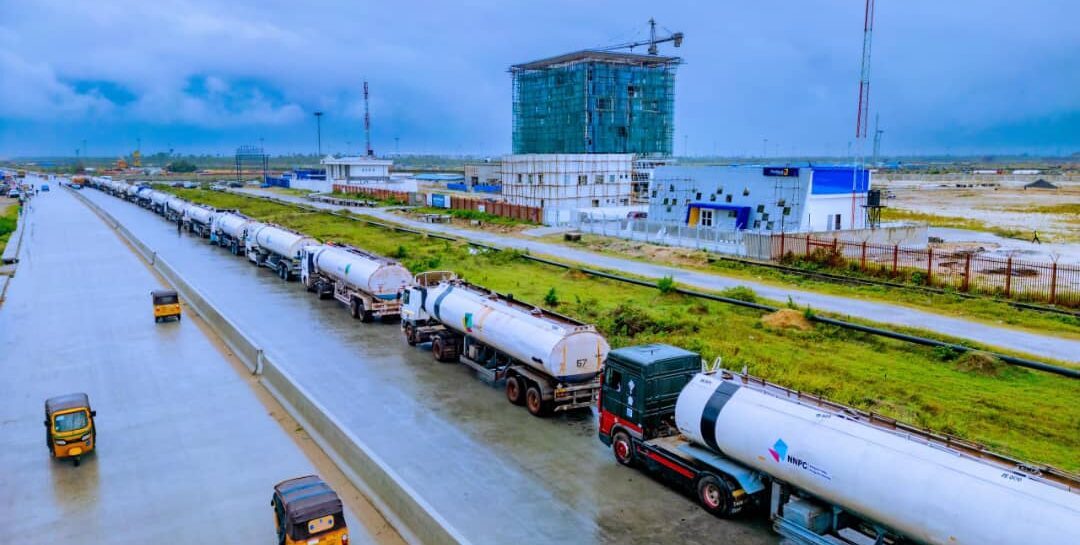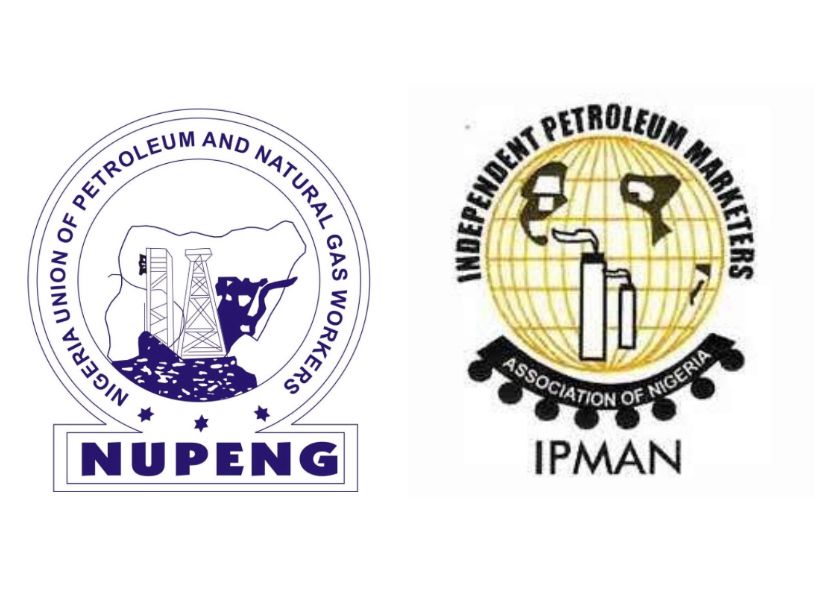•Inaugurates 15km road in Kwali area council
•Says rural connectivity necessary to drive national growth, prosperity
Deji Elumoyein Abuja
President Bola Tinubu says Nigeria’s agricultural renaissance has begun, as he launched 2,000 tractors for nationwide deployment under his Renewed Hope Agricultural MechanisationProgramme.
The inauguration ceremony yesterday in Abuja marked the programme’s formal take-off.
Likewise, yesterday, while inaugurating the 15-kilometre A2–Pai Town Road in Kwali Area Council of the Federal Capital Territory (FCT) at a separate ceremony, Tinubu declared that “infrastructure means nothing if it is not developed for the benefit of the people”.
The president stressed the importance of rural connectivity in driving national growth and prosperity.
However, during the inauguration of the tractors, the President reaffirmed his administration’s commitment to transforming Nigeria’s agriculture sector by modernising farming practices and ensuring national food security.
He described the initiative as a landmark moment in his administration’s food security agenda and a crucial part of efforts to empower farmers and stimulate rural development.
Tinubu stated, “We are very proud of what we are doing. We made a promise when we came in. We are fulfilling that promise.
“Two years ago, I sounded the alarm on our nation’s food security crisis. I demanded immediate and innovative solutions. That, again, is answered today—this is the first phase of it.
“This government recognises that agricultural productivity is synonymous with national stability and food sovereignty. The ability to nourish our population forms the bedrock of a prosperous nation. Our ambition extends beyond mere self-sufficiency.
“We envision Nigeria as a global agricultural powerhouse—supplying quality produce to international markets while ensuring every citizen can access affordable, nutritious food.
“That’s why we took a bold decision to establish this new agricultural mechanisationprogramme. We are just beginning.”
Tinubu disclosed that the 2,000 tractors and accompanying implements would be distributed nationwide through a service-provider model to support smallholder farmers with access to modern equipment, reduce manual labour, and increase yields.
He said, “We must seize this opportunity to achieve agricultural independence. Nigeria has the land, the people, and the tools. Let history recall this day as the beginning of Nigeria’s agricultural renaissance—where modern technology met our farmers’ legendary resilience to usher in greater prosperity.”
The president acknowledged the contributions of international partners, especially the Republic of Belarus, which played a key role in procuring the equipment, transferring technology, and providing training support for Nigerians.
“We have friends across the world. We have Belarus committed to a programme that will empower our youth—teach them how to do things, get them off the streets, and empower them in technology, machinery, and fabrication,” he said.
Tinubu paid special tribute to Alex Sigman, a Belarusian businessman and former classmate at the University of Chicago, for facilitating the collaboration.
He said, “Alex was my very good neighbour and schoolmate in Chicago. Never did we dream that I would become President of the Federal Republic of Nigeria and Alex, a successful businessman from Belarus—working together to promote the prosperity of our two countries.
“I believe our university will be very proud that we are doing this here today.”
The president commended the Federal Ministry of Agriculture and Food Security for its proactive leadership in rolling out the programme and called for strict stakeholder accountability.
“To all stakeholders receiving this equipment, deploy it with maximum efficiency. We will work with you, supervise you, and hold you accountable,” he stated.
Tinubu urged Nigerians to take ownership of the agricultural transformation drive and contribute actively to achieving food sovereignty.
Earlier, Minister of Agriculture and Food Security, AbubakarKyari, recalled that on July 13, 2023, Tinubu had declared a state of emergency on food security and issued a presidential directive for urgent and innovative solutions.
Kyari stated that mechanisation was placed at the core of the administration’s Renewed Hope Agenda.
The minister outlined four key initiatives launched under the Tinubu administration’s mechanisation policy, including the John Deere TractorisationProgramme, Greener Hope Project, Green Imperative Programme, and the newly launched 2,000 tractors procured from Belarus.
According to him, the Belarus project, implemented in collaboration with AfTrade DMCC and supported by the Republic of Belarus, delivered 2,000 high-quality tractors, 10 combine harvesters, 12 mobile workshops, 9,000 implements, and 9,000 spare part kits.
Kyari said, “Never in Nigeria’s history have we witnessed an agricultural mechanisation initiative of this scale, ambition, and national focus.
“We are today unveiling the single largest mechanisation drive ever undertaken in our country.”
He added that the programme was expected to cultivate over 550,000 hectares of farmland, produce more than two million metric tons of staple food, create over 16,000 jobs, and directly benefit over 550,000 farming households.
Other programme components include mandatory operator training, GPS-enabled tracking for accountability, a structured repayment model, and pro bono equipment allocations to research and training institutions.
He further stated that the initiative would engage Nigeria’s youth through new roles in equipment handling, maintenance, logistics, extension services, and agri-tech innovation.
Deputy Prime Minister of Belarus, Viktor Karenkevich, congratulated the Nigerian leader and the people of Nigeria for initiating a strategic and timely intervention to strengthen national food security.
Delivering a goodwill message on behalf of Belarus’s President, Alexander Lukashenko, Karenkevich described Tinubu’s choice of Belarus as a trusted partner in the supply of agricultural machinery as a testament to the enduring friendship between the two countries.
He stated that Belarusian equipment was known for quality, affordability, and durability and was present in over 100 countries worldwide.
Karankevich recalled that both nations signed a roadmap agreement during the 2024 Belagro Exhibition in Minsk, setting the foundation for joint agricultural mechanisation efforts.
He said, “Today, Belarusian machinery begins to serve the people of Nigeria. This marks the first phase of a landmark bilateral project that has already elevated our cooperation to a new level.”
The Belarus deputy prime minister confirmed his country’s readiness to move into the second and third phases of the programme.
He said the phases included establishing service and maintenance centres for Belarusian machinery in Nigeria, setting up local assembly plants for agricultural equipment, constructing grain storage complexes, and training Nigerians to operate and maintain advanced farming machinery.
He said, “Agricultural mechanisation is just one example of our cooperation.
“It confirms the immense potential of Belarus–Nigeria relations, grounded in friendship, equality, mutual respect, and trust.”
The deputy prime minister echoed the words of Lukashenko on Belarus’ approach to Africa, saying, “We come to Africa as friends. We are ready to help you become masters of your land, to benefit your people, and to develop your industry, agriculture, science, and technology.”
Karankevich delivered a personal letter and official invitation from Lukashenko to Tinubu, inviting the Nigerian leader to visit Belarus at a future date.
Meanwhile, Tinubu stressed the importance of rural connectivity in driving national growth and prosperity.
Speaking while inaugurating the 15-kilometre A2–Pai Town Road in Kwali Area Council of the Federal Capital Territory (FCT), the president lauded the FCT minister, NyesomWike, for prioritising rural development.
He told Wike, “You are doing commendable work in the underserved rural areas. We will ensure that development is not one-sided but balanced, inclusive, and aimed at improving lives.
“The commissioning of this newly constructed road, from the A2 junction on the Abuja–Lokoja expressway to Pai Town, is symbolic and strategic. It is symbolic because it represents Renewed Hope. It is strategic because it opens a new corridor for agriculture, commerce, education, and mobility—all of which are essential to strengthening our national economy from the grassroots up.”
The president called on the Pai community to take ownership of the road and preserve it for local growth.
“Let this road serve as a pathway to growth and a bridge to a better life for farmers, traders, students, and youth,” he said.
Tinubu stated that on his way to Pai from Sheda after inaugurating the 2,000 tractors for mechanised farming, he observed the pressing need for grain farmers and livestock owners to establish grazing opportunities and do what was necessary to improve productivity.
“We will help you. We will work with you. We will convert what used to be a liability and a source of conflict into a means of prosperity,” the president said.
Earlier, Wike said 150 kilometres of roads had been completed or were in progress across all six Area Councils of the FCT since the beginning of the Tinubu administration.
According to the FCT minister: “This is not propaganda. All six emergency roads approved in the 2023 supplementary budget have been completed and commissioned. These roads have transformed access and connectivity for our rural populations.”
The six completed roads are the 9km Paikon-Kore–Ibwa road in Gwagwalada Area Council, the 5km Gaba–Tokulo road in Bwari Area Council, with a two-span river bridge, and the 5km Asphalt carriageway from Tipper Garage Junction to LEA Secretariat in Kuje Area Council.
Others are the 11km Yangoji–Sukuku–Ebo Road in Kwali Area Council, the 5km Saburi 1 & 2 Road in Abuja Municipal Area Council (AMAC), and the Aguma Palace–Radio Nigeria–New Market Road in Gwagwalada Area Council.
The minister listed roads scheduled for inauguration later this week to include the 18km Karshi–Nyanya road, the 7.4km Old Ushafa Road, rehabilitation of Dutse–Lower Usman Dam, and the 16.4km dualisation of Ushafa–War College–Army Checkpoint Road.
According to Wike, these projects are vital for more than just transportation. He added that they contributed to food security, improved security response, and support socioeconomic inclusion.
He stated, “With better access, isolated communities can be reached, farmers can access their farmlands, and security agencies can patrol more effectively. We encourage real farmers—not speculators—to use this infrastructure to support the government’s food security agenda.”
The minister emphasised that the FCT administration, under Tinubu’s leadership, is working to expand development beyond the city centre, especially in terms of roads and electricity access.
“You can give someone an appointment, but nothing happens if you don’t support them. You have done both, and the results are visible across the FCT,” he said.
On his part, the traditional ruler of Pai, SarkinPai, AlhajiSaniAbubakar, expressed profound gratitude to Tinubu for his leadership and for appointing the FCT Minister.
Abubakar said, “Mr. President, we want to thank you for two things. One is appointing Mr Project to the FCT because the FCT minister has transformed how we live in rural communities. He is the right man for this job. We cannot thank you enough.
“This road has opened up many economic activities for us. Many of us had serious challenges transporting goods to market in the past—it hasn’t been fun. But now, you can see that everybody is happy. They have shown a large amount of appreciation for you and the minister.
“The minister used to say that we need leadership in this country, and you have given us that leadership. We want to thank you, Mr. President. I want to thank the Honourable Minister; he has been doing well for us, and a lot is still coming in this direction. We thank you, Mr. President.”




